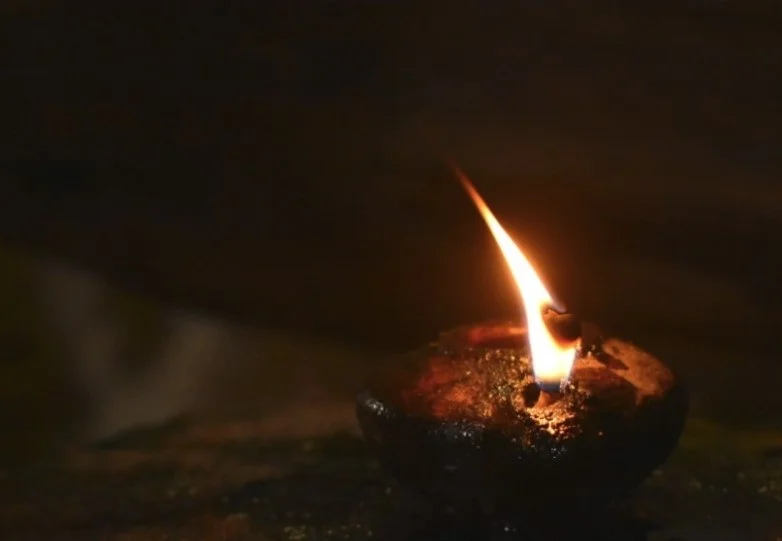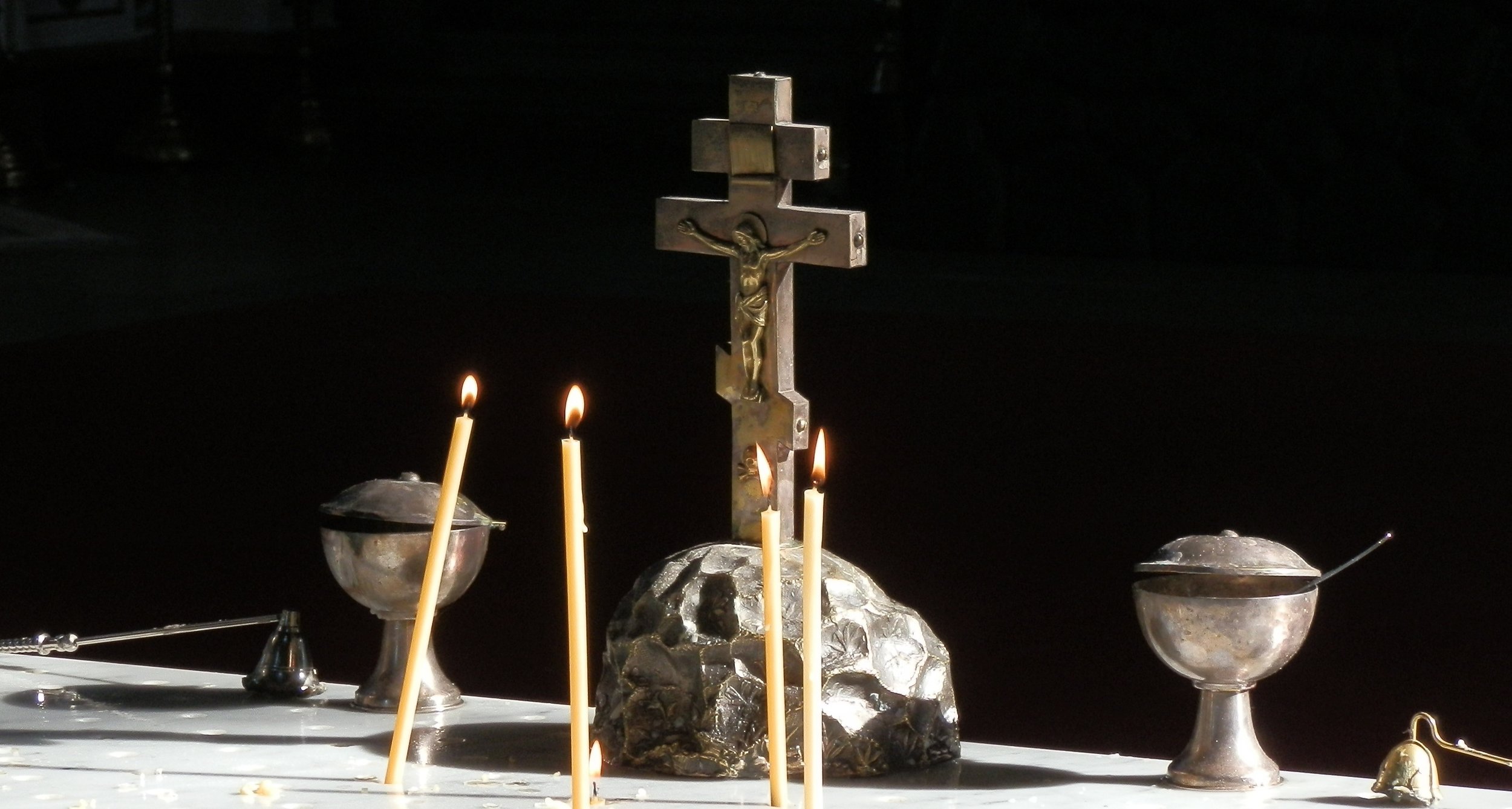Healing Atonement
The Early Church: Introductions and Evaluations
An old clay oil lamp from Nazareth, Israel. Photo credit: Olivia Armstrong.
Resources on Patristic Sources of Atonement Theology
Jonathan Burke, Participatory Atonement (Christian Studies website) and his paper, The Atonement in Historical Review (Academia)
Robert D. Culver, The Doctrine of Atonement Before Anselm (Patrick Henry College) incorrectly argues that satisfaction theory was present in the patristics, and that Anselm's satisfaction theory was correct; notice the very selective use of quotations. See also Michael J. Vlach, Penal Substitution in Church History (The Master's Seminary Journal, Fall 2009) who also incorrectly argues for penal substitution in the patristics; notice again the very selective use of quotations
Encyclopedia Britannica, Patristic Literature (website)
Alvin Rapien, Interviewing Ikons: Ben Myers (The Poor in Spirit blog, Oct 15, 2015) Dr. Myers, Lecturer in Systematic Theology at United Theological College (Australia) gives a short and sweet description of patristic theology on Christ, atonement, and hell. See also Ben Myers, Atonement - Jesus' Death (Youtube video, Sep 30, 2015) on Athanasius' understanding
Benjamin Myers, The Patristic Atonement Model (pdf file), a chapter from Oliver D. Crisp and Fred Sanders, editors, Locating Atonement: Explorations in Constructive Dogmatics (Amazon book, Nov 11, 2015)
Dania Rodrigues, The Ancient Greeks Sacrificed Ugly People (Atlas Obscura, Oct 30, 2015) part of the cultural backdrop which Christians rejected
Tim Barnett, Did the Council of Nicea Invent the Deity of Christ? (Stand to Reason, Nov 18, 2016)
Brad Jersak, What "Christ Died for Our Sins" Meant to the Fathers (Brad Jersak)
Vince Bantu, Mis-Reformed, the Imperialism of Reformed Theology (The Urban Perspective, Feb 19, 2018) highlights post-Chalcedon church split, perception of the Roman Empire as Christian, and Roman (Byzantine) persecution of non-Chalcedonian Christians in Syria and Africa.
Ted Johnston, What Sort of Human Nature Did Jesus Have (The Surprising God blog, Oct 26, 2018) a helpful short article, with good quotations; see also Ted Johnston, Atonement: Participation, Not Mere Imputation (The Surprising God blog, Feb 10, 2018)
Andrew Springer, A Brief Look at Five Views on The Atonement of Christ. Andrew Springer | Medium, Apr 12, 2020. This author seems to accept Gustav Aulen's characterization of the early church atonement view as "ransom." That is a gross oversimplification, and quite a bad one when exploring the nature of atonement. The reason we are vulnerable to Satan is not because he is analogous to a gangster, but because of a corruption of sin in our human nature that makes us susceptible to lies and fears, of which he is the functional source. Thus, Jesus had to overcome the corruption of sin and purify and perfect human nature. Jesus could not rescue us from Satan without healing our underlying vulnerability. He had to fulfill the responsibility for human nature that Israel, as a medical focus group of sorts, could not. That is why the "battlefield" logic is located in human nature and Jesus' human journey, and why the "substitution" logic -- with a medical view of human nature and "moral exemplar" in nature, and not exactly Anselm's honor-satisfaction, and certainly not Calvin's penal satisfaction -- undergirds "ransom." They are quite deeply interconnected. To separate them like this author does is disrespectful to how the mind of the early Christians actually worked. Here is my sprawling, ongoing paper on the early church, author by author: Penal vs. Medical Substitution: A Historical Comparison. Hence, the real critique of penal substitutionary atonement is that (a) it cannot actually be integrated into the other "imagery" and logics of the atonement, and (b) it was rooted in the magisterial Reformers' desire to anchor their retributive justice based political regimes over against the Catholic political powers, since the Reformers were not just starting new religious movements, but new city-states and nation-states as well.
Sources of Atonement Theology
These resources explore the foundation of “Medical Substitution” as the best understanding of the Bible, and the original understanding of the church. There are also links to books, web articles, etc. from representatives of the three broad Christian traditions.





